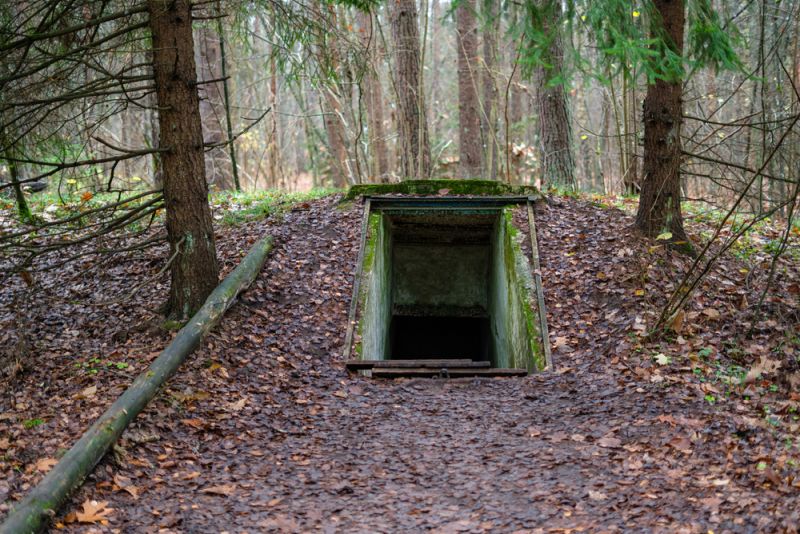Just three days before President Trump met in his first official summit with Vladimir Putin, Dan Coats, the National Director of Intelligence, came out saying that Russia is leading the pack in cyber-attacks against the United States.
Joining Russia are China, North Korea and Iran, the world’s other principal troublemakers. But of the four, he said, “Russia has been the most aggressive foreign actor, no question.”
This isn’t much of a surprise, considering all we’ve heard in the news media about Russian hackers interfering with the 2016 elections. But what is surprising and worrying is that they are attacking us at all levels, going after the computer networks or federal, state and even local government agencies, as well as US corporations and academic institutions.
This report dovetails nicely with reports from other agencies, stating that our electric grid is under daily attack, as hackers try to break in and disrupt our infrastructure. Although they have not yet caused any damage, there have been cases where they have gotten far enough inside our systems to take control.
Click here to find out how to survive when the lights go out!
Cyberwarfare Against the Grid
For the last few years, one of the main focus points in the prepping and survival community has been the risk of an EMP, specifically from a nuclear missile launched by North Korea. But while we have had our eyes on Kim Jong-un’s missile program, we have missed seeing what could be an even greater threat to our grid, foreign actors taking it down through cyberwarfare.
It’s hard to say which would be worse, an EMP or cyberwarfare. A lot would depend on how the attacks were carried out. An EMP has the potential for shutting everything down instantly, and more or less permanently. So does cyberwarfare, especially if they can create a cascading failure, with substations and transmission lines burning out.
But cyberwarfare also contains other risks, such as the destruction of power plants. There are currently 99 nuclear power plants in the United States. Should foreign hackers manage to get all the way inside the control systems of those power plants, they could cause a chain of accidents like Three Mile Island or Chernobyl. We wouldn’t be facing just the loss of power, but the potential for nuclear holocaust through various parts of the nation.
Surviving in a Post-Electric World
Many have written about how the loss of the electric grid would take us back to living like our ancestors did in the 1800s, but do we really understand what that means? Worse, are we truly prepared to live in that way? How many of us are actually self-sufficient enough to do that?
It’s safe to say that the loss of the grid, by whatever means, would not be a problem that would be solved overnight. If hackers were able to take down the grid in a manner that caused serious damage to it, it could easily be well over a year before power was restored across the county.
I don’t want to rehash what I and others have said, but I started listing the things that we would need to be able to do without electricity, which most preppers are not prepared to do right now. The list was disturbing, to say the least.
Water
People talk about getting water out of their hot water heaters or a local pond, both of which are great as short-term solutions in a pinch; but not for long-term solutions. You have to have some means of harvesting water on your property or at least in your neighborhood (if you live in suburbia). Our need for water will be great enough that you won’t be able to haul enough water back home every day, if you have to bring it from a mile away.
Forget the idea of one gallon per person, per day. That’s just the water you need for drinking and cooking. You’re also going to need water for cleaning and especially for gardening. If you can’t keep your garden watered, your plants will die and you will starve. Of course, if you live somewhere that has enough rainfall to water your plants, that won’t be as big a deal, but droughts can happen even there.
In olden times, communities were mostly built along waterways, to provide their need for water. Those who didn’t live close enough to the river would dig a well, sometimes gathering together and doing it as a neighborhood project. But they had water; and they had water close to their house.
But a well requires a pump and not an electric pump either. Unless you have sufficient electrical generating capability to power your pump, you’d better count on having a manual pump to go with your well.
Growing Food
The idea of feeding your family off of your 4 foot or even 12 foot vegetable garden is ludicrous. In olden times, the vegetable garden would often be bigger than the house; and that’s not even considering farmland, growing grains and crops to sell. You’re going to need to turn every foot of space you have into garden and even then, you’ll be hard pressed to grow enough food.
Keep in mind that you’re going to have to dig up your yard by hand, using a pick and shovel. That alone is going to be a major job, requiring endless days of hard physical work. But it will have to be done, before you can even begin to plant. Then there’s the problem of having enough seed, fertilizer and other chemicals to garden on that scale. I’m amazed how much I go through in my 15’x 30’ garden. A larger one would be even worse.
Growing crops, without the availability of tractors, is backbreaking work. The average pioneer family could only cultivate about 40 acres. That’s a whole lot different than today’s corporate farms that consist of thousands of acres. Even if there was a way to distribute the food that those farmers grow, without diesel-powered tractors to cultivate it, most of that farmland will lie fallow.
Growing animals is even more space-consuming than growing crops. Yet we humans are omnivores. We crave meat in our diet. Unless you have several acres, you’re going to be limited to growing small animals, like chickens and rabbits. Even then, you’re going to have to raise feed for them and keep them out of your garden.
Heating our Homes
You probably already have a plan for heating your home in the event of the power going out. Chances are, you’re going to heat with wood, as that is the most common solution that preppers turn to. But do you have enough wood to get you through a winter? Depending on how cold it is where you live and what kind of wood you’re burning, you could go through four to six cords of wood in a winter.
But even if you have that much wood stacked up behind your house, what are you going to do for the next winter? How are you going to cut that much wood by hand? You probably have an axe or maul for splitting your wood, but do you even own a bucking saw that doesn’t require gasoline or electricity?
The bigger problem will be in finding wood that you can cut. Unless you live in a rural community, surrounded by forest, it’s unlikely there are enough trees growing near your home to provide you with the firewood you will need. Worse, once you start cutting trees, your neighbors will want to cut them too, so whatever trees there are will go quickly. Of course, once you cut that wood, you’ve got to have a way of getting it back to your home.
Transportation
In the 1800s the most common means of motive power was the horse. It doesn’t matter if we’re talking about riding, pulling a wagon, plowing or running industrial machinery, horses were in use everywhere. Today, there are only about 20 million horses in the United States, up from a low of 4.5 million. But only about 9 million of those are domesticated and those are owned by a very small percentage of the population.
The only other viable option for a non-gas or non-electric powered transportation, other than on waterways, is bicycles. While a bicycle can be a great means of getting from one point to another, you are severely limited in how much you can carry. It wouldn’t be the type of thing to use for brining firewood home or taking grain to market.
Third-world and emerging countries have tricycles which are used for cargo and as short-run taxis on city streets. However, I have yet to see one of these in the United States. So, while enterprising craftsmen could make them, we don’t have them now.
Transportation is essential for any trade to happen and any society to grow. Before we can even think about restoring electric power, we have to have a means of moving the necessary equipment to where it is needed. Horses will be at a premium, as people try to rebuild their lives.
Medical Services
Another area where the lack of transportation is going to have a huge effect is in medical services. Doctors and other medical staff will be severely limited by the lack of electricity, unavailability of medicines and inability to use much of the diagnostic equipment they are accustomed to.
But an even bigger problem will be in getting the patients to the doctors. If you’ve ever watched a western movie, chances are there was a scene in which someone was shot and they sent someone riding off to get the doctor. While the doctor arrived in minutes in the film, it could take hours in real life, especially for people who lived in outlying areas.
Unless you have the ability to take care of most medical emergencies on your own, especially injuries, chances are very high that you’ll lose a family member or two to accidents, injuries or gunshot wounds.
Waste Disposal
Most homes today are connected to city sewage, taking care of our human waste disposal problem. But when the electricity goes out, causing the water to shut off, the sewage treatment will be out too. Most sewage systems can hold about three days worth of sewage. After that, the system will be backed up, possibly even backing up into people’s homes; especially those in low-lying areas.
We talk about using a five gallon bucket as a toilet, which is fine as a short-term solution; but only as a short-term solution. What are you going to do when those bags of human waste start stacking up? I seriously doubt there will be anyone coming around to collect it.
Those who have a septic tank are at a distinct advantage. They’ll be okay for at least a couple of years, assuming that their tank is relatively empty of solids when the power goes out. After that, they’ll be in the same shape as everyone else.
There are two options available to us in this situation. One is to dig an outhouse, the other is to use humanure and compost our waste. The question is, are you ready to implement either of these?
Of course, that’s not the only waste problem we’re going to have to face. We’re also going to have to deal with trash. That wasn’t much of an issue in olden times, when potatoes came in burlap sacks and people reused the sacks. But today, everything we buy comes in packaging that has to be disposed of. The obvious solution is to burn it, but we have to be careful with that, as some plastics can give off poisonous gases when burnt.
Tools
Throughout the last century, power tools have gradually taken the place of manual hand tools. In the last few decades, those power tools have become cordless. Either way, they still require electricity, at least once the batteries run out.
How ready are you to work, without power tools? Even people with well-equipped workshops rarely have manual drills and saws, let alone a foot-treadle grinder for sharpening them. Without power, it’s going to become increasingly difficult to build things and make repairs.
Work
Finally, most of our jobs will be gone. On one hand, that’s good, because just surviving is going to be a full-time job. On the other hand, if we’re ever going to come out of the dark ages, we’re going to have to reestablish some sort of commerce. We’re also going to need some way of getting the things that we need, whether by making them, scrounging them or bartering for them.
A large percentage of today’s jobs depend on electricity. Assuming that your job is one of them, do you have something you can fall back on when the lights go out? Do you have a skill or trade that you can do without electricity, which will be valuable to others? People with knowledge and skills in doing things by hand will become extremely valuable, as most people don’t have those skills.
Not only that, but it will be those people who rebuild society, specifically by rebuilding commerce. Cottage industries will pop up all over, where people are making things and bartering them with others. On a larger scale, it will be those people who eventually figure out how to turn the lights back on.











William Glass | July 17, 2018
|
Question. How do the Amish handle these problems? I look on them as the template for surviving the collapse of the “technical” civilization.
Alex | July 18, 2018
|
Hello William,
Thank you for commenting on our article. We thought this article might be useful for answering your question:
http://www.survivopedia.com/survival-tactics-of-the-past-vs-survival-today/
If you need any advice or information, please do not hesitate to contact us at: [email protected]
Alex, from Survivopedia
Brotherhorse | July 17, 2018
|
Oh, that’s funny.
Even the most primitive Amish I know use led head lamps though mostly oil lamps, gas powered well pumps, led portable lighting, diesel engines =belt drive to run equipment..
Open wells are illegal in the states now days.
They to some degree depend on us, the English for gas, transportation much of the time, hardware soda/sugar items
They are not the great horseman, if you ever herd that lie.
Mennonites are far better to their animals but the typical Mennonite or Amish horse 1 in 3 are lame and should not be in use in my
observations.
They do grow almost all their own produce/ eggs/ goats/ cattle. ant trade/barter within their communities.
I have worked with and for many in the mid WI area.
But in the end they will suffer some in an actual collapse and their local communities stick together unlike the regular populous.
Farmer Phyl | July 18, 2018
|
We can’t go back to living like Americans did in the 1800s. We have 320 million more Americans today than in 1800, yet we have less wood and coal for power than we did back then. It would require a whole new way of life; not like today and not like 200 years ago either.